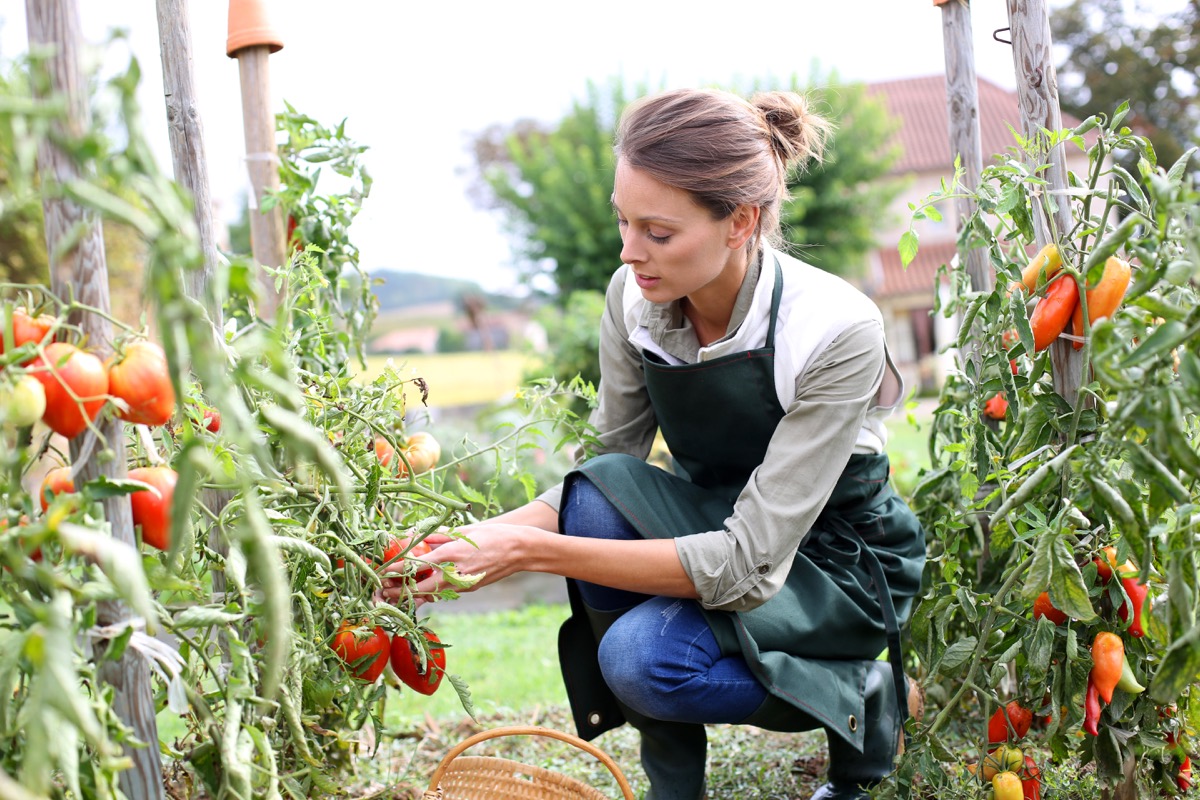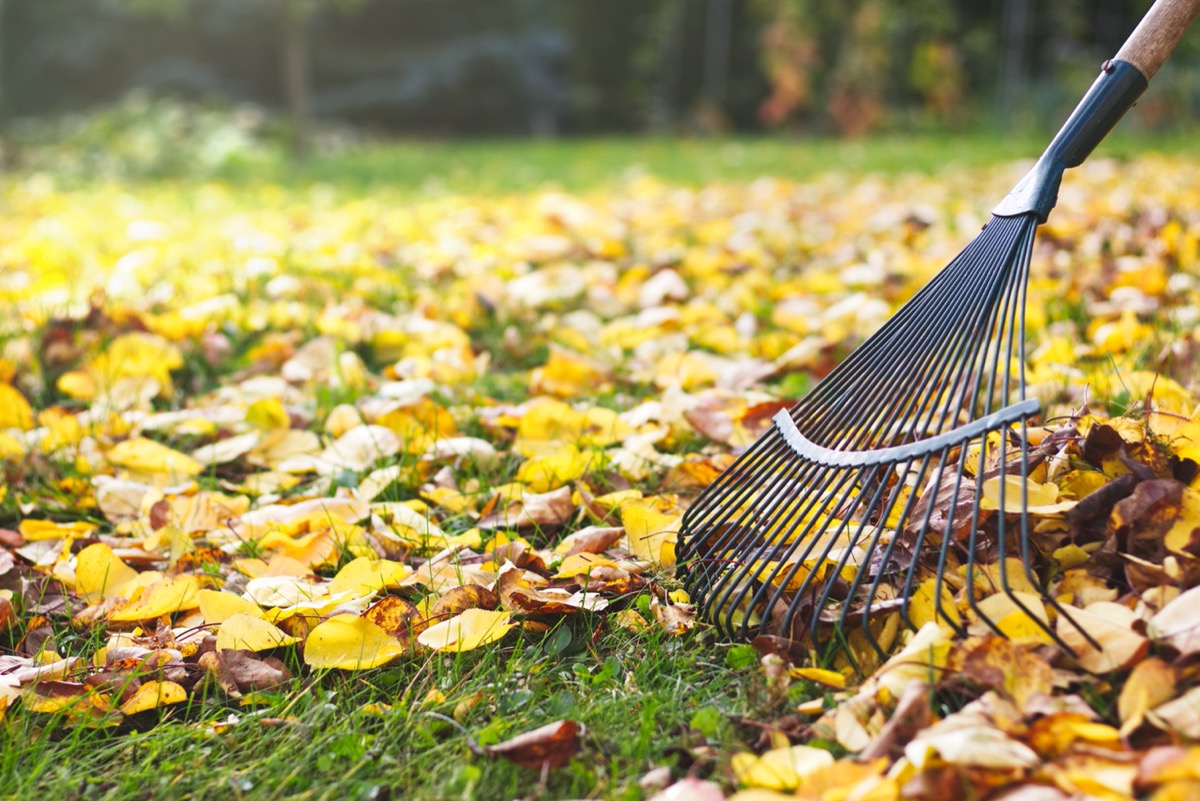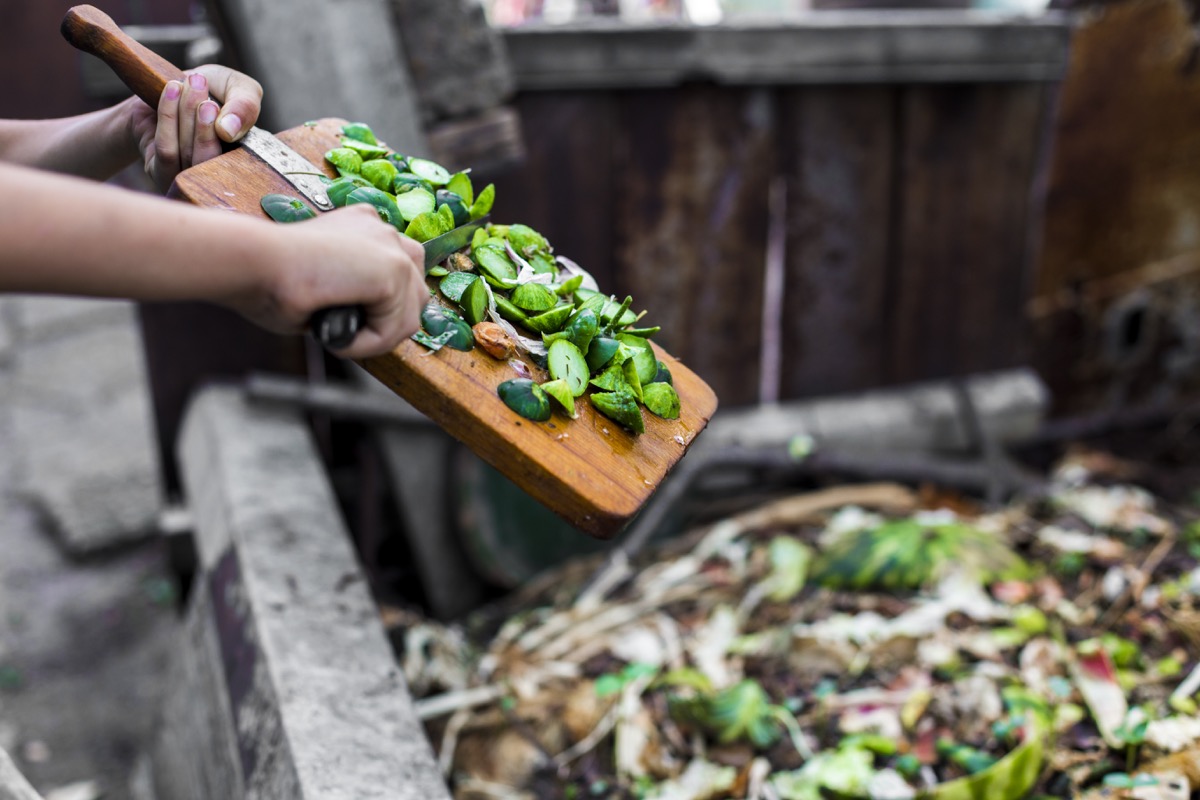You’re Inviting Mice Into Your Home If You’re Ignoring This One Chore

Keeping your house in good order can feel like a never-ending battle. Whether it’s tidying up the kitchen or mowing the lawn, it can be easy to let certain tasks slide over time as you become overwhelmed. But while no one wants to work themselves to the bone with domestic duties, there is at least one chore you shouldn’t ignore if you want to avoid attracting mice into your home. Read on to see which obligation you should stay on top of to prevent a potential rodent infestation.
RELATED: 6 Foods in Your Kitchen That Are Bringing Mice Into Your Home.
Putting off harvesting fruits and vegetables from your garden could be inviting mice into your home.

Anyone fortunate enough to have the time and space required to grow their own fruits and vegetables knows how much of a pleasure it is to have fresh produce available to you pretty much any time. But there is one downside to having those vine-ripened tomatoes for your salad and fresh berries for your smoothie: Mice and rats love fruits and vegetables just as much as you do.
“It’s important to regularly harvest fruits and vegetables from your garden because leaving them to wilt on the vines, or fall off and rot on the ground, can lead to increased rodent activity around your home,” John Carney, president of SafeSpray Pest Control, tells Best Life. “Rodents are drawn in by the smell of decaying fruits and vegetables, so if your garden is located close to your home, it can also lead rodents to seek shelter inside because of the proximity to a food source.”
Be sure to remove any ripe or fallen fruits and vegetables from the ground where mice can easily get them.

Looking to avoid setting out a buffet for pests? Experts suggest maintaining your yard like you would your kitchen if you happen to have a vegetable garden, fruit trees, or fruit bushes on your property. Make it a point to harvest early or remove all ripe, fallen, or rotten fruit and vegetables from your yard and from around the base of bushes and trees before their flesh and seeds can become a full-fledged feast for pests. Just be sure you’re taking care of the unwanted fruit by disposing of it in the proper receptacle.
“When unconsumed fruits and berries are left to rot on their bushes or trees or left in uncovered trash cans, these rodents are drawn by the smell and sweetness,” mousetrap company Victor Pest control writes. “This can ultimately lead to infestations of residential properties.”
The same rules also apply to your kitchen. “Even once fruits and vegetables are picked and brought inside, they should be stored properly such as in the fridge, or in a food-safe container to help block the smell from rodents,” Kevin Sherrill of Sherrill Pest Control tells Best Life.
RELATED: For more up-to-date information, sign up for our daily newsletter.
Keeping your garden tidy and organized can help reduce the chances of attracting mice.

Besides staying on top of your harvesting duties, other simple tasks can help cut back on attracting mice or rats to your yard. Bagging and removing all untidy piles of dead plants, clippings, brush, and gardening materials such as unused pots or soil bags will give rodents fewer places to take shelter. Experts say this also involves keeping any grass in your garden trimmed, moving any nearby woodpiles where mice can take up residence, and making sure to rake or remove any fallen foliage regularly.
Make sure your compost isn’t becoming an all-you-can-eat buffet for rodents.

For most gardeners, starting a compost pile is as rewarding as it is practical. Unfortunately, you may be getting more than free organic fertilizer out of the arrangement. Besides providing a vast food supply for mice and rats, the piles can also create plenty of space for rodents to take shelter. If you happen to be keeping your compost close to your garden for convenience’s sake, you could be setting up a potentially irresistible mini eco-system for pests.
Fortunately, you can avoid turning your hard work into a condo for mice or rats with some basic maintenance. According to mousetrap company Victor Pest, you should turn your pile weekly and spray it down with a hose to make it less hospitable for rodents. You can also keep persistent pests at bay with a rigid plastic container for your compost.
RELATED: If You Notice This Smell at Home, You May Have Mice, Experts Warn.